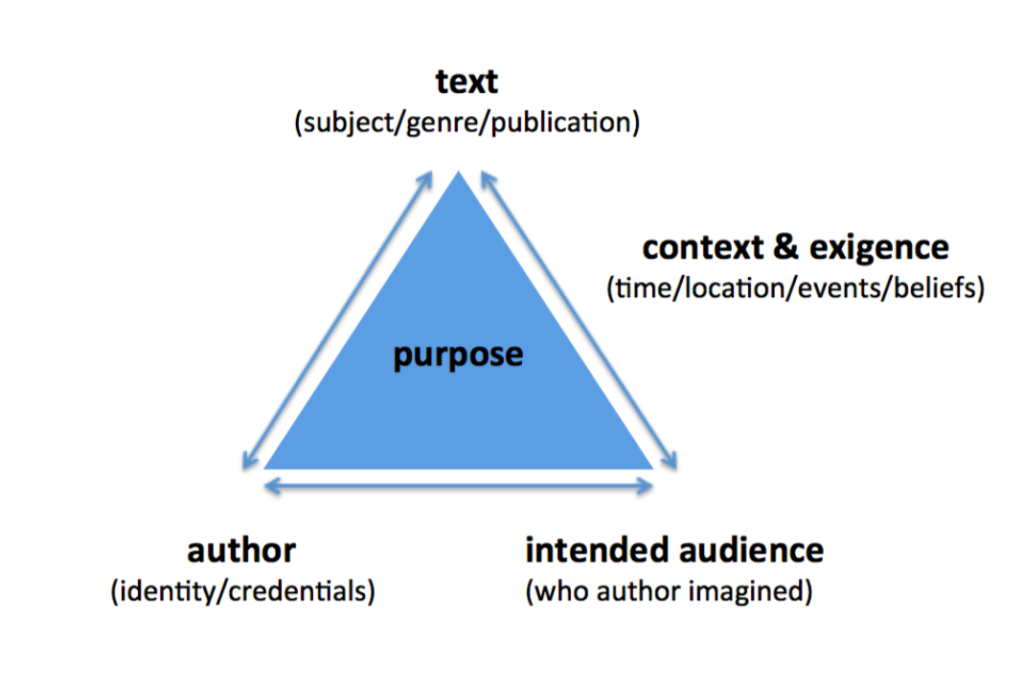Rhetoric
- The study, uses, and effects of written, spoken, and visual language (Rhetoric and Writing Studies, San Diego State University)
- the study of the effective use of language
- the ability to use language effectively
- the art of influencing the thought and conduct of an audience (dictionary.com)
The Rhetorical Situation

- writer– age, experience, profession, gender, locations, political beliefs, education, etc.
- text – subject (broad, narrow), genre (poem, essay, narrative, speech, etc.), publication (newspaper, book, website, journal, etc.)
- intended audience – audience of the publication and/or that the writer imagined (consider age, experience, profession, gender, locations, political beliefs, education, expectations, etc.)
- purpose– to persuade, entertain, inform, educate, call to action, shock, etc.
- context and exigence – the “situation” which generates need/urgency is writing; time, location, current events, cultural significance
Argument
Argument, in the context of rhetorical study, does not refer to a situation in which people are fighting. Rather, argument refers to a situation in which a writer is making a case for a way of seeing things—to feel, consider, believe, or do something. It is a conclusion or claim based on evidence. For any piece of language (written, spoken, or visual) designed to bring about some change in a reader’s, listener’s, or hearer’s ideas or attitudes, we can consider these texts arguments.
Evidence
Evidence is the support, reasons, data or information used to help persuade an audience of an argument. To find evidence in a text, ask yourself: What does the author have to go on? What evidence is there to support this claim? Is the evidence credible? Types of evidence include scientific facts, historical examples/comparisons, (hypothetical) examples, analogies, illustrations, statistics (source & date are important), charts/graphs, expert testimony, citing authorities, anecdotes, witnesses, personal experiences, reasoning, etc.

